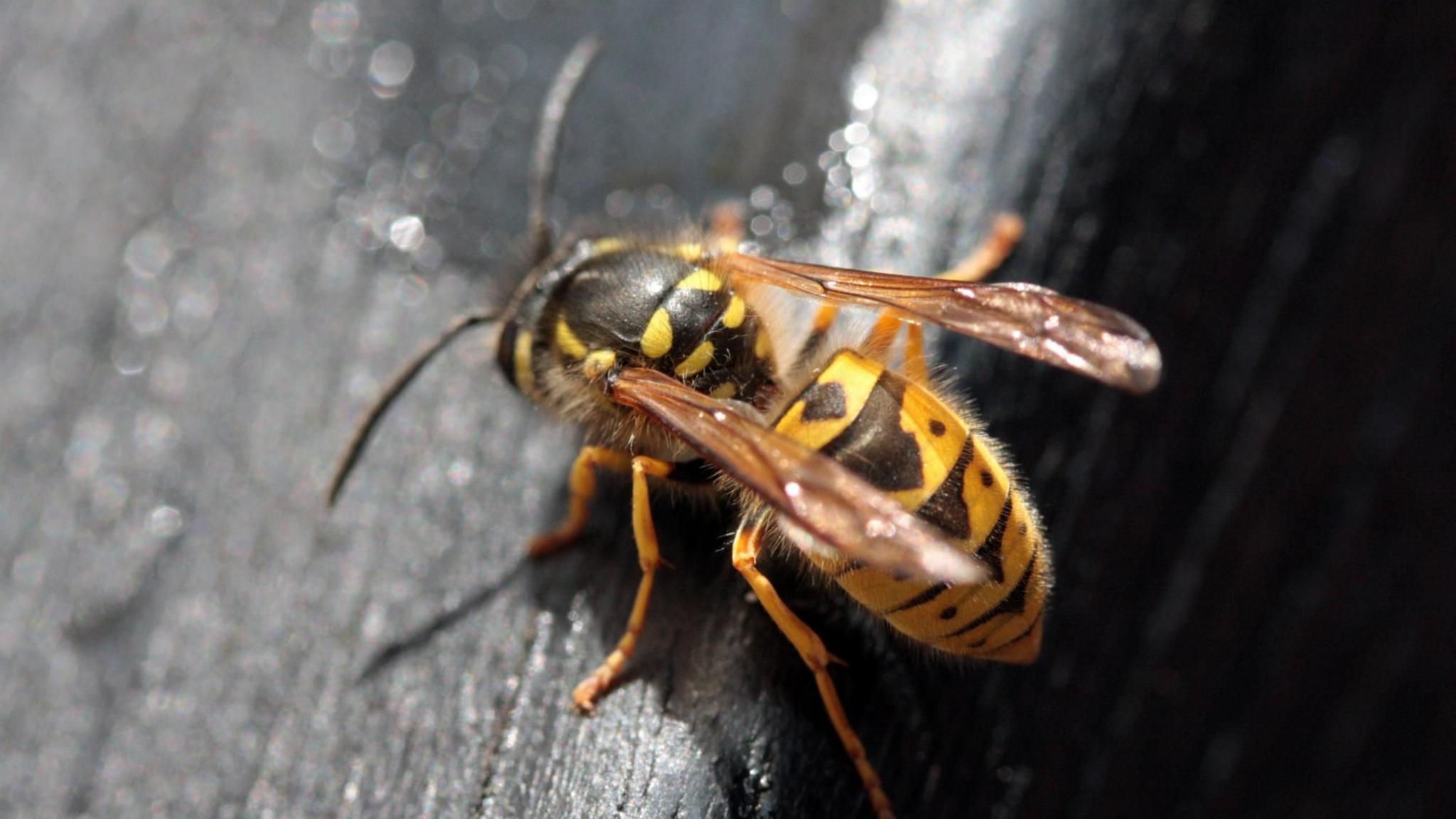Firm tackling '40% rise' in callouts over wasps
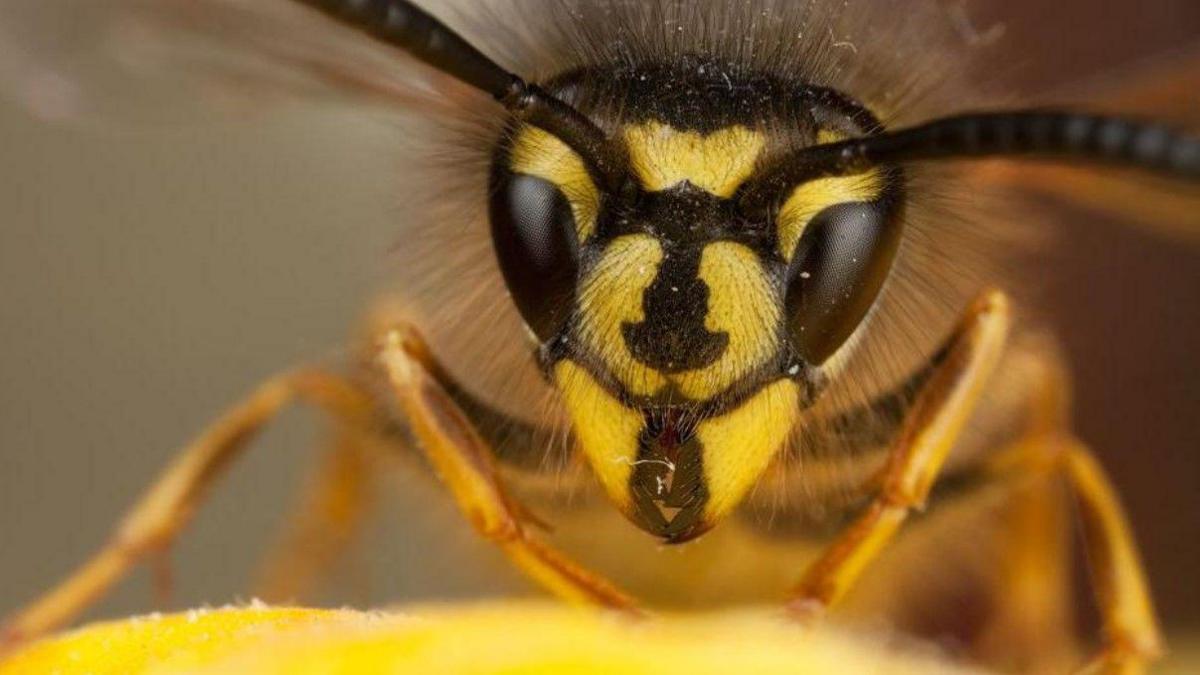
In previous years "you would just get one or two nests at a site", Dave Atkinson said
- Published
A Herefordshire pest control expert said he had seen a large rise in callouts over wasps this year, with about 40% more than usual.
Dave Atkinson, who owns ARD Pest Control in Hereford, believes the population had risen "phenomenally" this year, which included "such a mild winter and early spring".
His work has escalated because of multiple wasp nests at sites, including one client who had 11 nests at their property over about four or five weeks. Mr Atkinson said the wasp increase had kept the firm very busy for the past eight weeks.
Industry experts have said very warm and dry conditions can "commonly coincide" with strong years for wasps.
Mr Atkinson said in previous years "you would just get one or two nests at a site".
He added for the client with 11 "you can imagine the problems that they would have had, if they had been left".
The pest control expert said: "I'm getting in lots of fours, fives and sixes at clients' properties now.
"So as far as client callouts [are concerned] it's probably gone 40% more than usual."
Asked if he had seen the wasp population increase over the years and especially in 2025 because of the heatwaves, he replied: "I would say particularly this year."
This was "due to the fact that we had such a mild winter and early spring", he said.
He added the "population has increased phenomenally this year, as far as the pest control service callouts" requested were concerned.
Mr Atkinson stressed he dealt with a wasp nest "cautiously", adding "you use specialist chemicals that are registered for that job specifically within the health and safety industry".
"Mostly it's a powder that you inject directly into the nest or in close proximity to the nest... The wasps then carry the material into the nest and [it] actually wipes the whole nest out."
The UK has about 9,000 species of wasps, most of them are solitary and do not live in large colonies and these are generally not a nuisance to humans.
Wasp experts say they also are an important part of our eco-system, capturing insects such as caterpillars and greenfly.
Get in touch
Tell us which stories we should cover in Hereford & Worcester
Follow BBC Hereford & Worcester on BBC Sounds, Facebook, external, X, external and Instagram, external.
- Published19 July
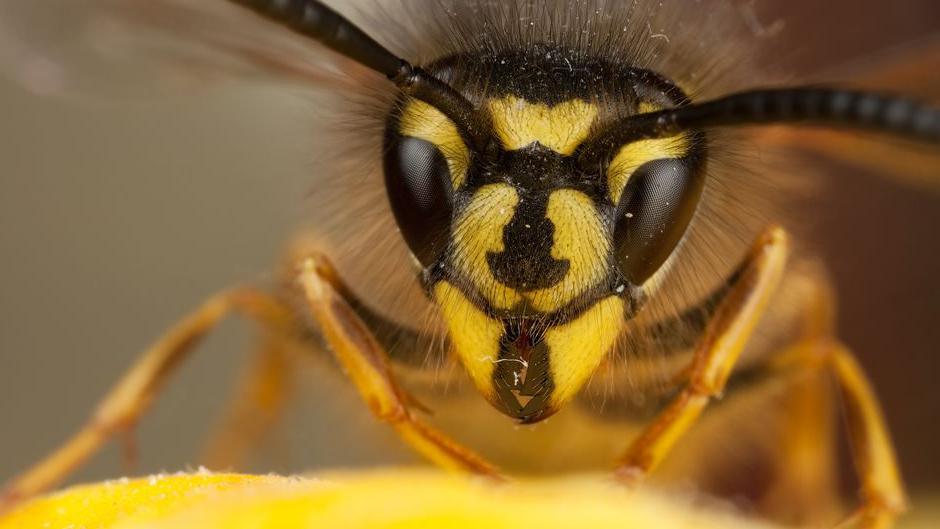
- Published9 May
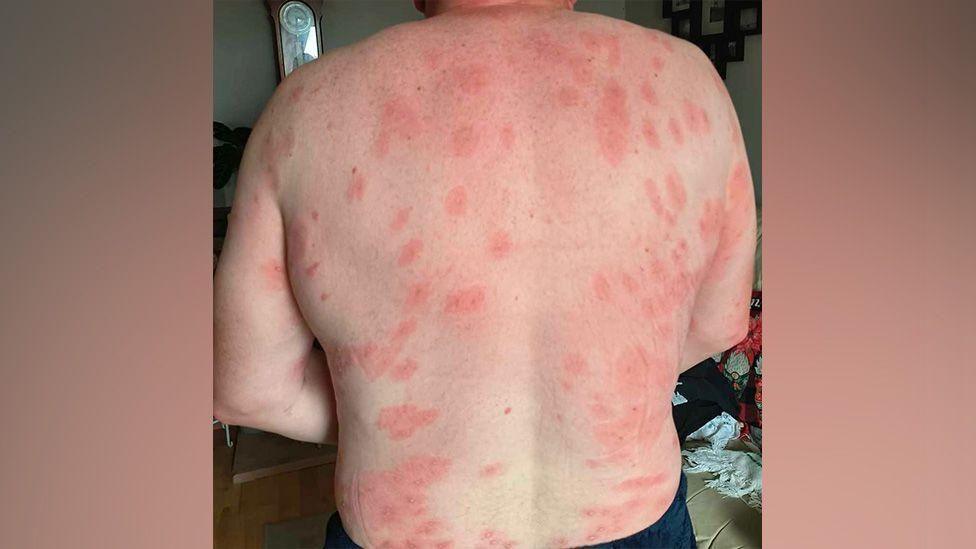
- Published9 May
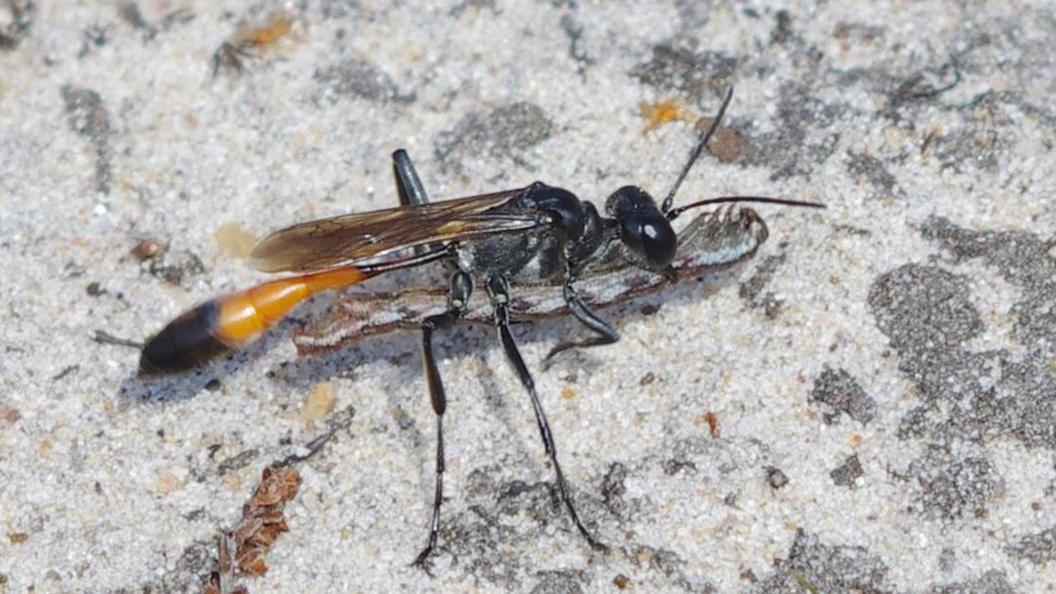
- Published4 August 2024
